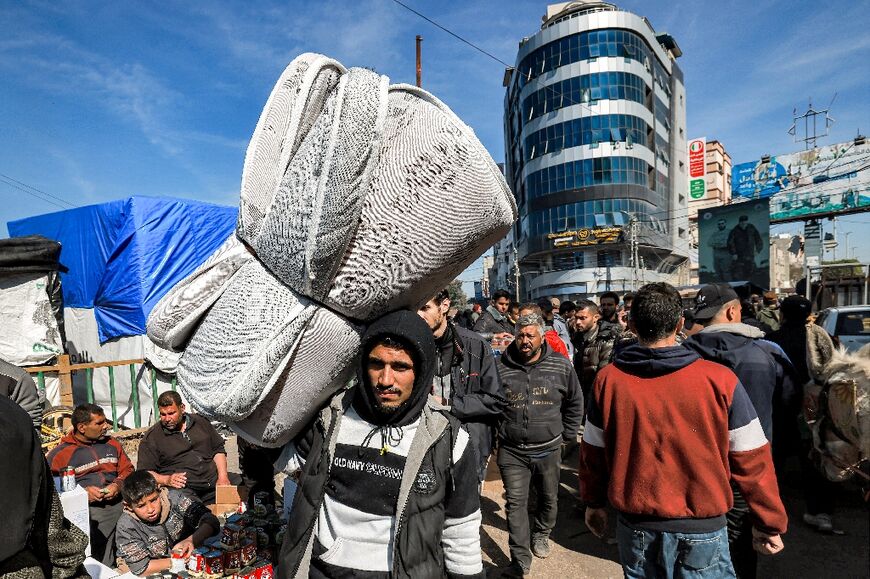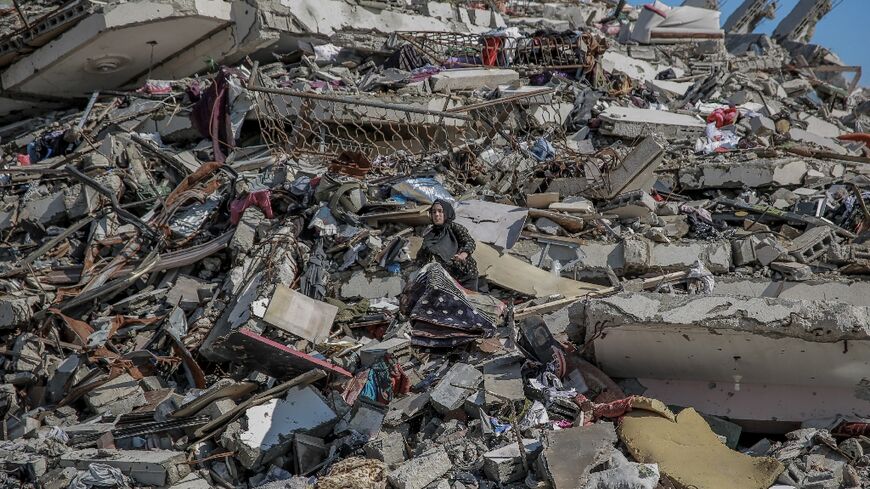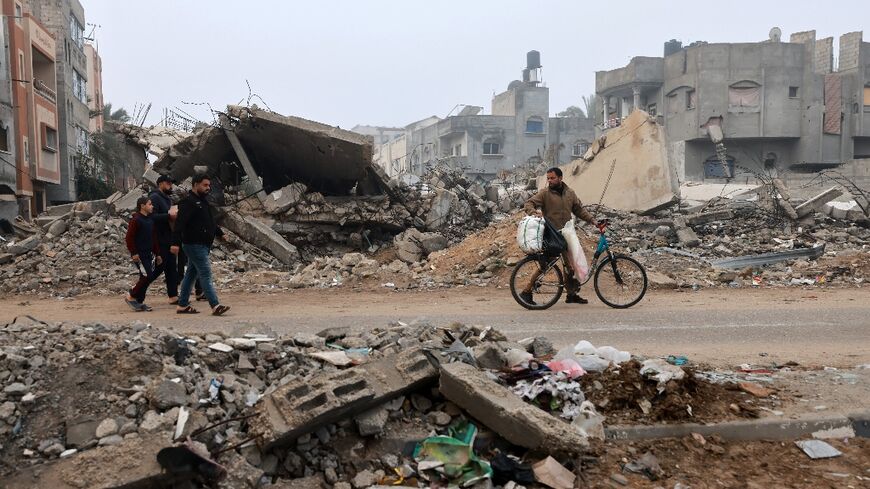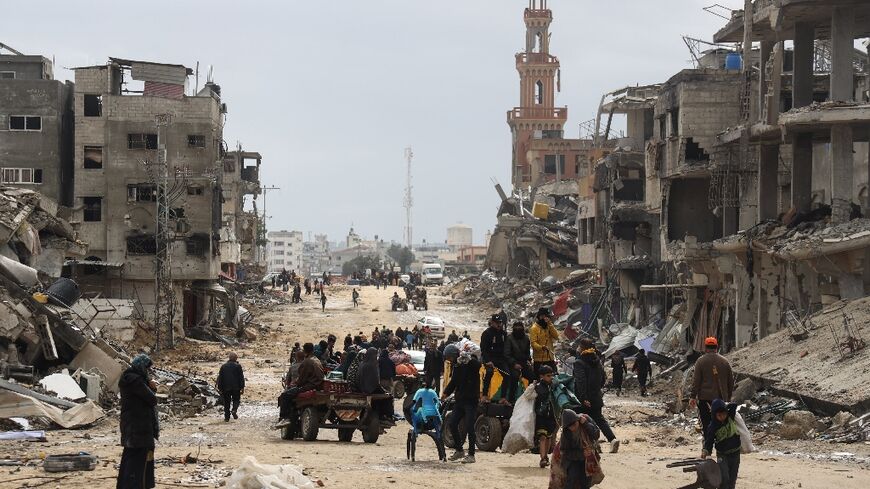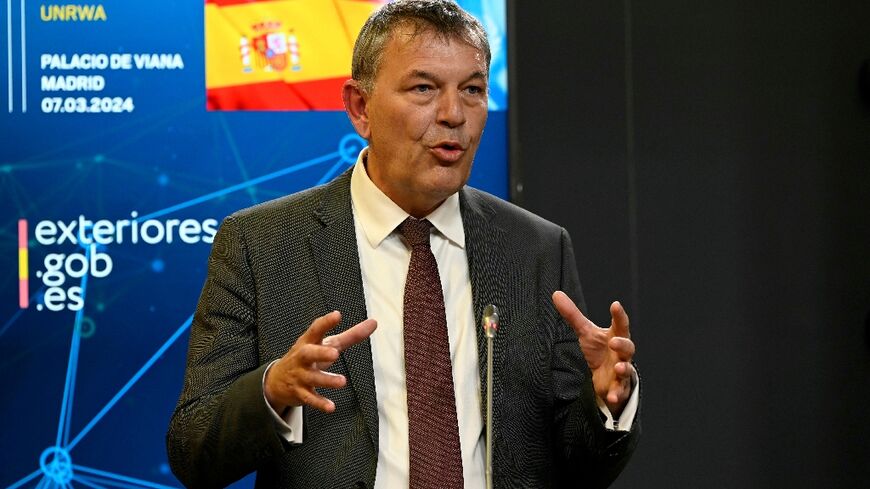At least 300,000 at risk from lack of food in north, central Gaza: UN
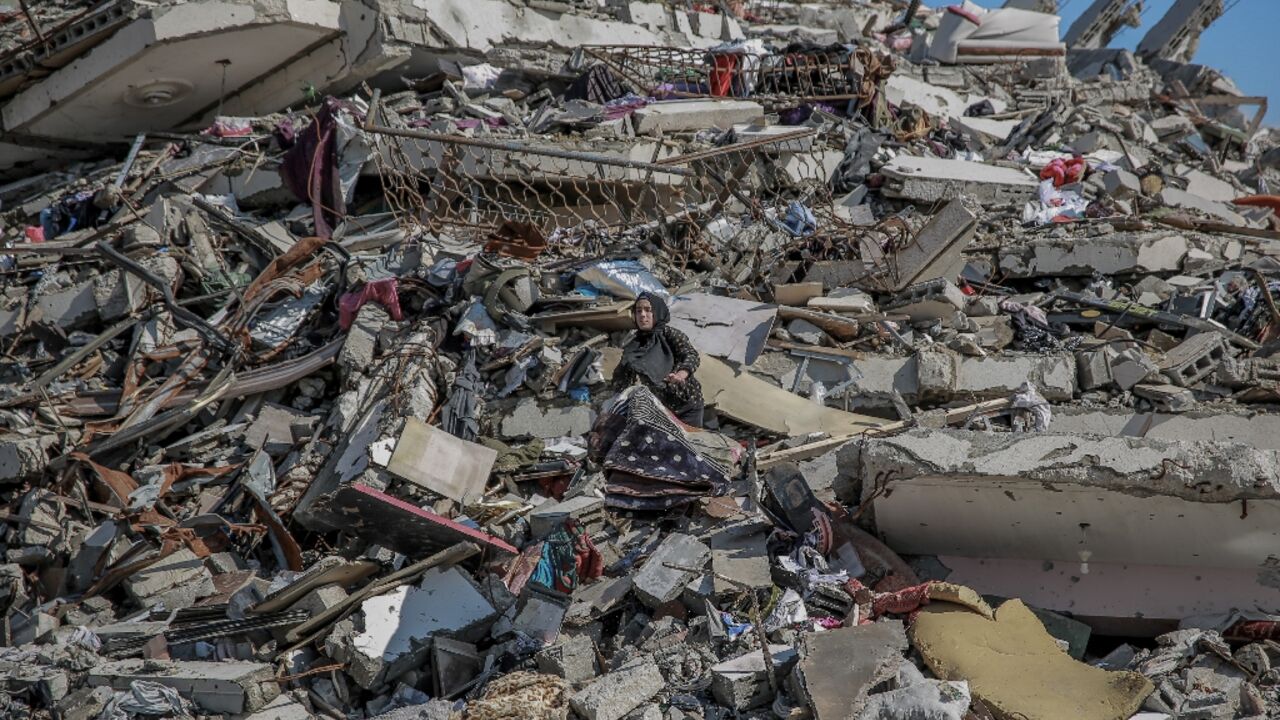
Hundreds of thousands of people's lives are at risk in north and central Gaza because of a lack of food, the UN agency for Palestinian refugees (UNRWA) warned on Thursday.
UNRWA chief Philippe Lazzarini said the last time the agency was allowed to deliver supplies to the area was more than two weeks ago on January 23.
Other agencies providing humanitarian aid also reported blocks on getting relief into the Palestinian territory, which has been bombarded by Israel since Hamas's deadly attack on October 7.
"Since the beginning of the year, half of our aid mission requests to the north were denied," Lazzarini wrote on X, formerly Twitter.
"The @UN has identified deep pockets of starvation and hunger in northern #Gaza where people are believed to be on the verge of famine.
"At least 300,000 people living in the area depend on our assistance for their survival."
Israel, which has laid siege to the tiny, densely populated territory, ordered people living in north and central Gaza to move south as it goes after those responsible for the October 7 attack.
More than half of Gaza's estimated 2.4 million people are now crowded into the city of Rafah in the south, where Israel's Prime Minister Benjamin Netanyahu has ordered troops to prepare to attack.
Thomas White, director of UNRWA affairs in Gaza, said there was now "enormous concern" about a looming offensive in Rafah, where the agency bases its operation for the whole of the Gaza Strip.
"It's going to be very difficult to manage an aid operation if we have to move from Rafah. We are struggling to meet the demands of the people right now," he told Al Jazeera English.
"If there are hundreds and hundreds of thousands of people on the move again, we just do not have the resources to support them but also operationally we will not be able to effectively or safely run operations from a city that's under assault from the Israeli army."
- 'Hunger and despair' -
Despite the move south, many remain in Wadi Gaza, in the centre, and the north.
Georgios Petropoulos, head of the UN humanitarian agency OCHA in Gaza, said the territory was being turned "into a wasteland of hunger and despair".
Aid agencies were being blocked, while the few trucks that make it through are mobbed by residents, who in north Gaza were "on the edge of starvation", he told AFP on Wednesday.
"They congregate by trucks and other vehicles carrying goods sometimes in their thousands, and unload them in minutes," he added.
An AFP reporter on Wednesday witnessed hundreds of men waiting for a convoy of aid trucks south of Gaza City on the main road from north to south.
When they saw Israeli military vehicles advance in their direction, many fled but others kept moving towards the convoy. Several were wounded by gunfire and were taken to hospital, the reporter added.
World Central Kitchen, a non-profit organisation providing food aid, also reported only being able to get to north Gaza "a limited number of times each week".
They now take two trucks -- one transporting meals for hospitals, and the other to deliver food to crowds on the route, it said in a statement.
US Secretary of State Antony Blinken, on a visit to the region this week, made a new plea for more aid into Gaza.
"Preventing access prevents lifesaving humanitarian aid," wrote Lazzarini. "With the necessary political will, this can be easily reversed."
But Israel claims that Hamas, which runs Gaza, is diverting aid for its own ends to prolong the five-month conflict.


